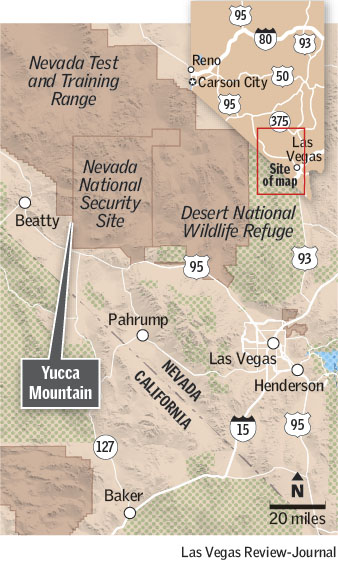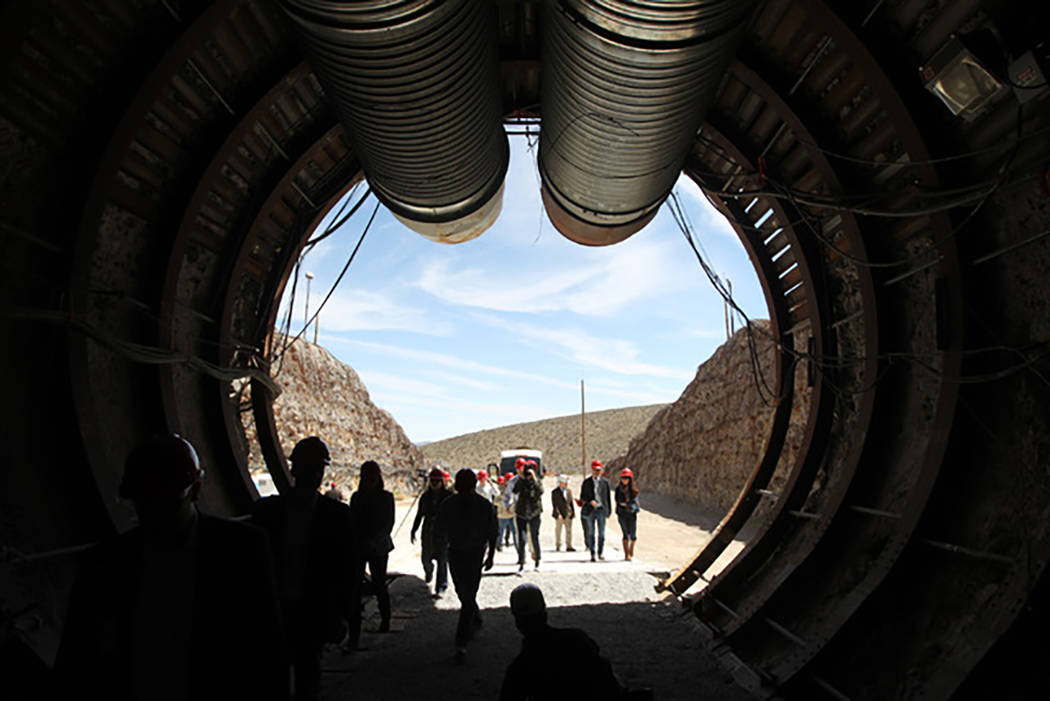U.S. Senators question Energy secretary on Yucca Mountain budget
WASHINGTON — U.S. Energy Secretary Rick Perry appeared before a skeptical Senate panel Wednesday to defend his $30 billion budget proposal, which includes money for licensing of the Yucca Mountain nuclear waste repository in Nevada.
Senators dismissed a similar request last year and urged the Trump administration to move more aggressively to fund interim storage facilities for growing stockpiles of nuclear waste.
Sen. Lamar Alexander, R-Tenn., chairman of the appropriations subcommittee for energy and water development, repeated that request Wednesday and cited the need to find other long-term solutions.

“We have more than enough used fuel to fill Yucca Mountain to its legal capacity,” Alexander said.
Alexander told Perry the quickest and least expensive way for the government to meet its legal obligations is to take spent fuel currently piling up at nuclear energy plants and contract with a private company for interim storage.
The Energy Department’s proposed budget for fiscal year 2019, which starts Oct. 1, calls for spending $110 million to restart the licensing application process for Yucca Mountain and $10 million to study temporary storage sites for nuclear waste. A license from the Nuclear Regulatory Commission is needed to start construction at Yucca Mountain, but the licensing was halted in 2011 under the Obama administration. The House and Senate are at loggerheads over how to address nuclear waste generated by utility plants in 33 states and whether to press ahead with opening Yucca Mountain, designated by Congress in 1987 as the site for permanent storage.
The House passed legislation last year to streamline the licensing process and expand Yucca Mountain storage.
But senators have cited the public opposition in Nevada over the nuclear waste site, about 90 miles northwest of Las Vegas, as a reason to explore other storage sites.
Alexander said he still sees Yucca Mountain as an integral part to solving the nuclear waste problem, “but even if Yucca Mountain were open today, we would still need to look for another permanent repository.”
In the meantime, an application has been submitted to the NRC for a license to temporarily store nuclear waste in New Mexico and Texas.
Perry, who defends the Trump administration attempts to revive the Yucca Mountain licensing process as a legal obligation, will appear before the House Energy and Commerce Committee on Thursday to continue testifying on the Energy Department budget request and the administration’s proposal for addressing nuclear waste.
The DOE budget represents a slight increase from fiscal year 2018. It prioritizes supercomputers, but cuts many programs, including renewable energy, research and nuclear energy.
Sen. Dianne Feinstein, D-Calif., the ranking Democrat on the subcommittee, said she was deeply disappointed with the budget proposal and the Trump administration efforts to “cut, cut, cut.”

















